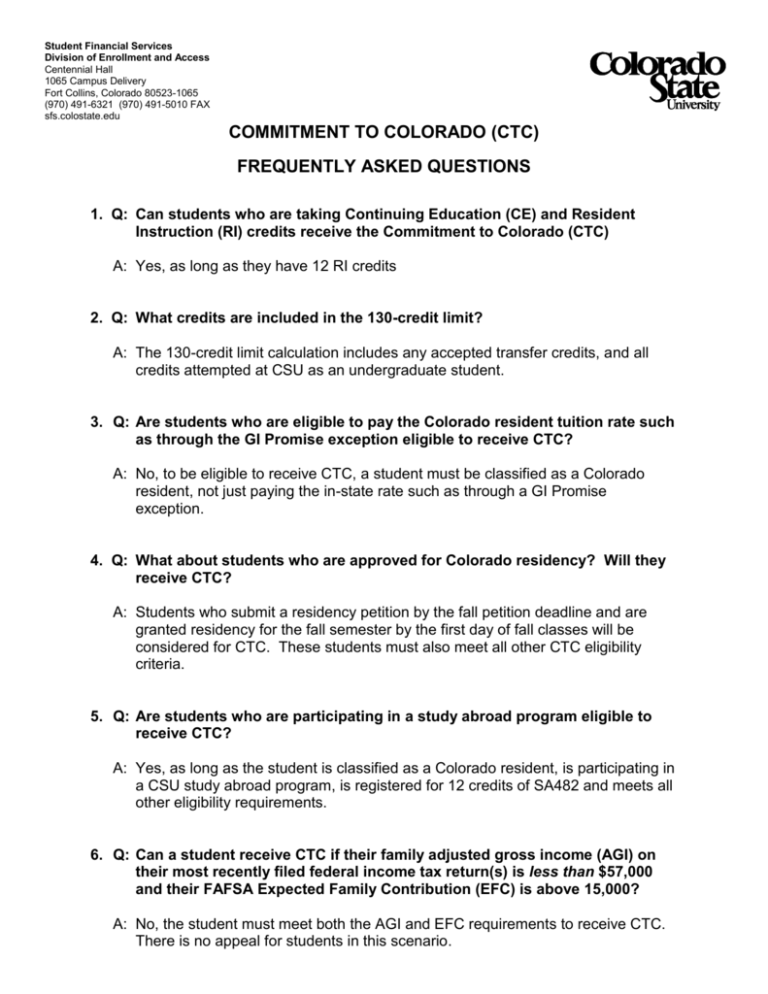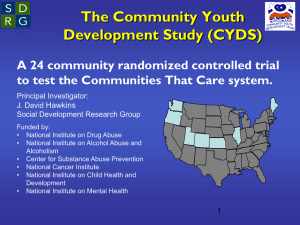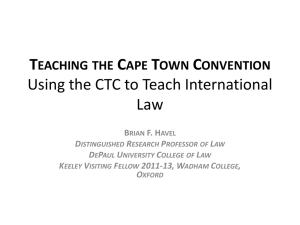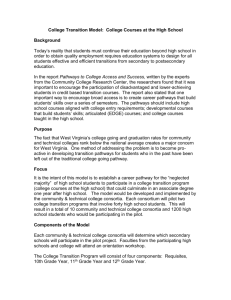Student Financial Services - Colorado State University
advertisement

Student Financial Services Division of Enrollment and Access Centennial Hall 1065 Campus Delivery Fort Collins, Colorado 80523-1065 (970) 491-6321 (970) 491-5010 FAX sfs.colostate.edu COMMITMENT TO COLORADO (CTC) FREQUENTLY ASKED QUESTIONS 1. Q: Can students who are taking Continuing Education (CE) and Resident Instruction (RI) credits receive the Commitment to Colorado (CTC) A: Yes, as long as they have 12 RI credits 2. Q: What credits are included in the 130-credit limit? A: The 130-credit limit calculation includes any accepted transfer credits, and all credits attempted at CSU as an undergraduate student. 3. Q: Are students who are eligible to pay the Colorado resident tuition rate such as through the GI Promise exception eligible to receive CTC? A: No, to be eligible to receive CTC, a student must be classified as a Colorado resident, not just paying the in-state rate such as through a GI Promise exception. 4. Q: What about students who are approved for Colorado residency? Will they receive CTC? A: Students who submit a residency petition by the fall petition deadline and are granted residency for the fall semester by the first day of fall classes will be considered for CTC. These students must also meet all other CTC eligibility criteria. 5. Q: Are students who are participating in a study abroad program eligible to receive CTC? A: Yes, as long as the student is classified as a Colorado resident, is participating in a CSU study abroad program, is registered for 12 credits of SA482 and meets all other eligibility requirements. 6. Q: Can a student receive CTC if their family adjusted gross income (AGI) on their most recently filed federal income tax return(s) is less than $57,000 and their FAFSA Expected Family Contribution (EFC) is above 15,000? A: No, the student must meet both the AGI and EFC requirements to receive CTC. There is no appeal for students in this scenario. 7. Q: Can a student receive CTC if their family adjusted gross income (AGI) on their most recently filed federal income tax return(s) is above $57,000 and their EFC is 15,000 or less? A: No, the student must meet both the AGI and EFC requirements to receive CTC. There is no appeal for students in this scenario 8. Q: What grant aid would students who are not Pell Grant eligible, and whose family adjusted gross income on their most recently filed federal income tax return(s) is $57,000 or less and they have a 15,000 or less EFC receive if they complete the FAFSA after August 1? A: They would not receive any grant aid. They will be offered student loans. Dependent students will also receive parent loans. 9. Q: Do scholarships impact CTC eligibility? A: Institutional scholarships are not used in the CTC calculation, nor are outside scholarships. CSU foundation scholarships may be used in the CTC calculation. The only time a scholarship may reduce a CTC award is if it causes the student’s total aid to exceed their budget (cost of attendance). 10. Q: Are Alliance Partnership Award students eligible for CTC? A: Alliance Partnership Award students are eligible for CTC, however, the Alliance Partnership Award plus the Alliance Partnership increase is a better benefit to the student financially. Student Financial Services (SFS) manually reviews each of these students and will give each student the award that is most financially beneficial. In most cases, Alliance students will not receive the CTC. 11. Q: If a student misses the August 1st Fall deadline, can they be considered for a Spring CTC award? A: No, academic year eligibility is based on meeting all eligibility requirements on August 1. Only new spring admits will be considered for CTC if they submit a FAFSA by January 1 (previously December 1) and meet all eligibility requirements. 12. Q: What grant aid would federal Pell Grant eligible students receive if they complete the FAFSA after August 1? A: Pell eligible resident students will receive federal Pell Grant. 13. Q: Is a student guaranteed to continue receiving CTC funds? A: A student’s yearly eligibility is determined by submitting a new FAFSA by the August 1 deadline for each year. Students who have attempted more than 130 credits will not be eligible for future CTC funds. There is no appeal or exception for this requirement. Students must meet the eligibility requirements each year. 14. Q: What is student share of base tuition? A: Student share of base tuition is base tuition for a Colorado resident minus the College Opportunity Fund (COF). 15. Q: Will CTC cover all fees? A: CTC will only cover standard fees for students who are federal Pell Grant eligible. 16. Q: Are students who are receiving Chapter 33 VA benefits eligible to receive CTC? A: Yes, students receiving Chapter 30, 33, 1606 are eligible to receive the CTC. Currently, VA benefits do not impact financial aid eligibility. 17. Q: Is CTC funding available for summer courses? A: No, CTC funding is available only for fall and spring courses. (COMMITMENT TO COLORADO) ctcfaq1314.doc 3/14/13







